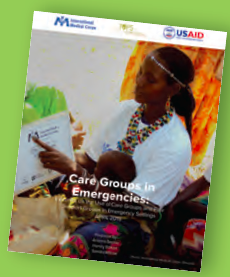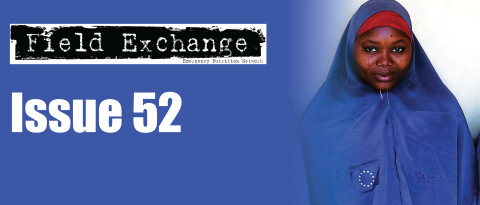Care Groups in Emergencies: Research Report and Recommendations Guide
 Care groups (CGs) and other types of peer support groups are increasingly used in emergency settings to provide different types of support to those affected. International Medical Corps (IMC) received a grant from USAID’s Technical and Operational Performance Support (TOPS) Programme to develop a Research Report and Recommendations Guide for the use of Care Groups in Emergencies. Three main emergency stages were distinguished: acute, protracted, and transitional.
Care groups (CGs) and other types of peer support groups are increasingly used in emergency settings to provide different types of support to those affected. International Medical Corps (IMC) received a grant from USAID’s Technical and Operational Performance Support (TOPS) Programme to develop a Research Report and Recommendations Guide for the use of Care Groups in Emergencies. Three main emergency stages were distinguished: acute, protracted, and transitional.
Evidence was gathered on the use of care groups (CGs) and other types of peer support groups in emergency settings amongst 11 international NGOs in 14 countries, to analyse their application and develop recommendations. This involved literature review, stakeholder interviews, field visits (Philippines and Ethiopia) and a stakeholder workshop. Reported benefits of CGs included large coverage, rapid dissemination of information, rapid behaviour change, peer support, trusted communication channel, and provides for a monitoring/screening/referral system. Challenges identified include intensive initial set up, short term funding, programme material development, finding qualified staff and volunteers, population mobility, community sensitisation and issues around monetary incentives. Specific recommendations are made to address implementation, ranging from targeting to meeting length, to volunteer recruitment to formative research.
The full documents can be accessed through the FSN Network Resource Library: Care Groups in Emergencies: Research Report and Recommendations Guide.


